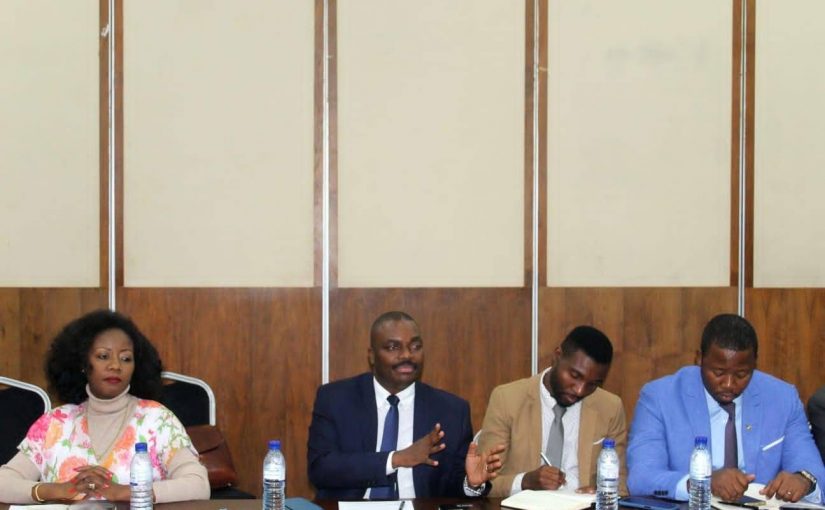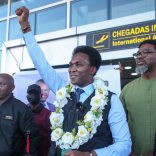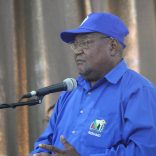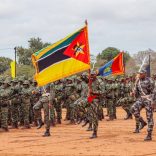Mozambique: Mondlane celebrates new party as police fire shots outside airport
Mozambique: Technical Commission’s mandate includes non-partisan security forces, Constitutional review

FILE - For illustration purposes only. [File photo: IMD - Instituto para Democracia Multipartidária ]
The Technical Commission being formed to implement the inclusive political dialogue agreement in Mozambique will, over the course of two years, deal with the definition of republican and non-partisan security forces, a new electoral model and the review of the Constitution of the Republic.
The information is contained in the invitation to Mozambican civil society, launched today and running until June 30, for the selection of three members to join the technical commission to materialize the political commitment to an inclusive national dialogue, agreed in March, with a view to pacifying Mozambique after the tension that followed the general elections of October 9.
“The formation of the Technical Commission represents a fundamental step in the materialization of the political commitment, ensuring its inclusive, transparent and legitimate conduct,” reads the invitation, published today, asking civil society to indicate “suitable, qualified candidates with proven experience” in the various areas of operation.
“The applications received will be assessed in a transparent and participatory manner, culminating in the selection of three civil society figures, respecting regional and gender representation,” states the notice, which defines that the mandate will be for two years.
“We will be open to receiving proposals for applications from civil society figures to join the technical committee,” committee president Edson Macuácua said on Friday.
Among other functions, the Technical Commission will be responsible for conducting State reform, including the “review of the Constitution of the Republic, the Political system, the powers of the Head of State, the depoliticization of institutions, and the decentralization and deconcentration of political, economic and financial matters, including Tax Reform”.
Furthermore, it will be responsible for preparing the reform of the Justice system, namely the “mechanism for appointing the heads of justice bodies and their respective financial and administrative independence”, as well as the reform of the Electoral system, “defining a new model, composition of the electoral administration bodies, electoral legislation, electoral justice bodies, among other aspects that contribute to the integrity of the entire electoral process”.
The Commission will also be responsible for “improving the defence and security system”, aiming at “establishing republican, non-partisan and professional forces”, as well as “reforming and modernising public administration, including the quality and quantity of services provided by the State, as well as employment and income generation policies”.
It will deal with the reform of the policy on the exploitation of natural resources, to “increase the benefits of the state, the provinces and the communities where the resources are exploited, including the issue of national processing” of these raw materials, and the “adoption of economic inclusion measures, with a focus on young people, women and people with disabilities”.
Finally, the Technical Commission should promote “reconciliation and national unity”.
READ: Mozambique: Candidates from civil society for “Inclusive Dialogue” to apply by 30 June – AIM | Watch
Mozambique has experienced almost five months of social tension, with demonstrations, initially in protest against the election results of October 9, called by former presidential candidate Venâncio Mondlane, resulting in around 400 deaths.
On March 5, Mozambican parties signed a political commitment with President Daniel Chapo to implement state reforms.
The commitment to pacify Mozambique after the 2024 general elections was transformed into law by the Mozambican parliament and includes the establishment of a technical committee of 21 members – 18 from the parties and three appointed by civil society – to operationalize political dialogue and state reforms.
On March 23, Chapo and Mondlane met for the first time and a commitment was also made to end post-election violence in the country, having met again on May 21 with an agenda to pacify the country.
READ: EU supports two CSOs that assist technical committee in Mozambique’s inclusive political dialogue
Mozambique’s Inclusive Political Dialogue: More than $1.4 million for Technical Committee – Carta












Leave a Reply
Be the First to Comment!
You must be logged in to post a comment.
You must be logged in to post a comment.